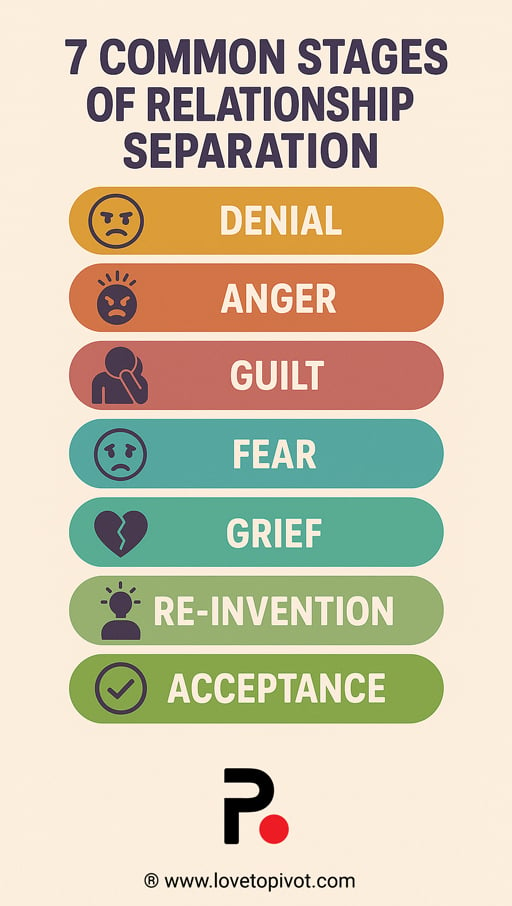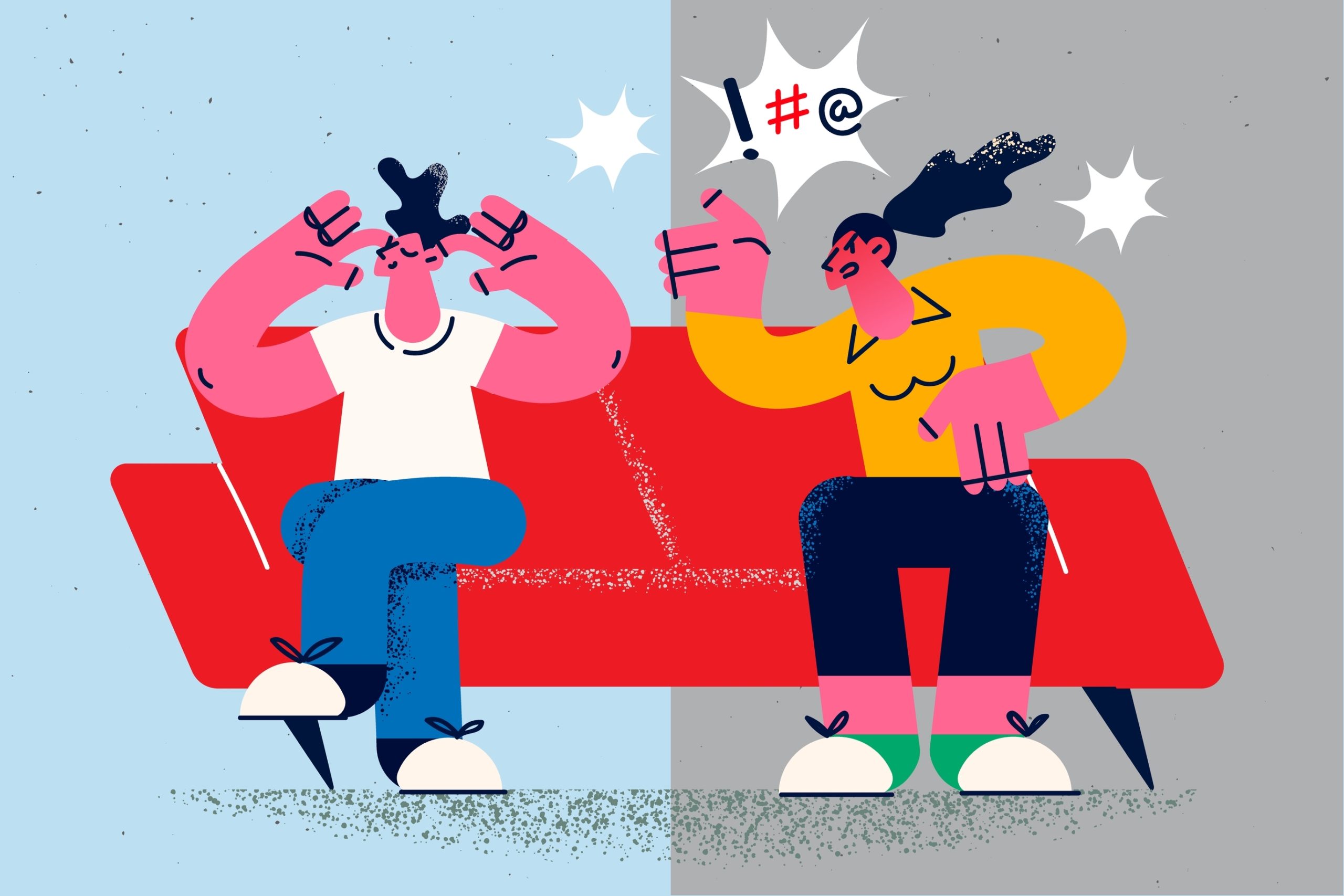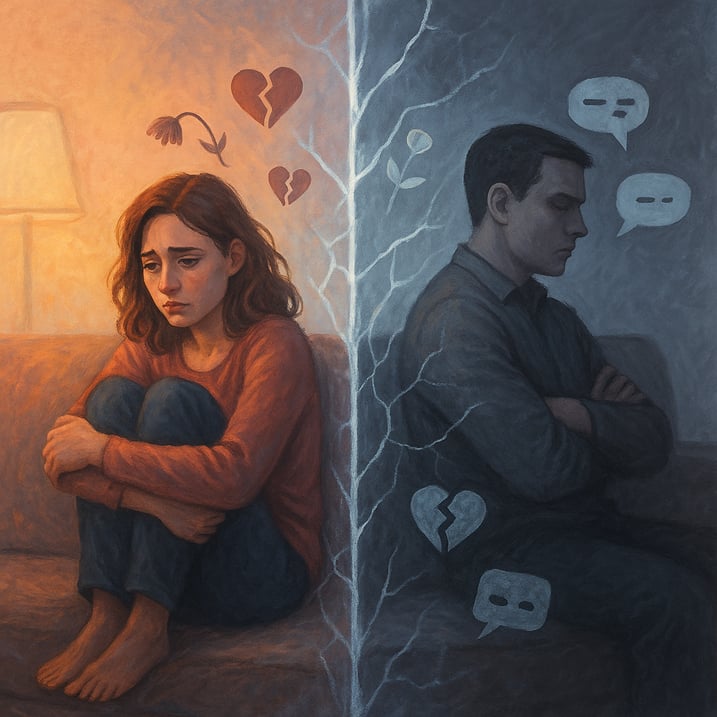Separation in relationship is a gut-wrenching crossroads, where the weight of what’s lost crashes into the uncertainty of what’s next. It’s the empty chair where your partner once sat, the quiet that replaces shared laughter, and the jarring shift from “we” to “me.” Whether you’re reeling from the end or the one pushing for it, the emotional toll is undeniable—grief, doubt, and fear of future intimacy tangle together, making every step feel heavy. Yet, you’re not alone in this; countless others have faced this storm and emerged stronger.
But here’s the hope: this doesn’t have to be the end. Relationships can heal—sometimes a couples intensive or honest effort can bridge the gap. And if not, there are healthy ways to let go, to rebuild yourself, and to find peace or even love again. In this article, we’ll dive into what separation really means, how to navigate its emotional maze, and the practical steps others have taken to mend what’s broken or move forward with grace—starting with rediscovering you.
What Does Separation Mean In A Relationship?

Separating from your relationship means taking a break to reflect on the partnership and personal needs. It’s an emotionally tough step that can lead to reconciliation or signal the end, like a breakup or divorce. Yet, it also offers a chance for growth and clarity.
For example, a temporary separation might help partners tackle personal struggles—think stress or burnout—aiming to reunite stronger. On the flip side, a separation as a prelude to divorce often hints at deeper, unresolved issues.
Separation comes in different flavors:
- Trial Separation: A structured, temporary split where partners live apart but stay legally married, often hoping to reconcile with clear rules like counseling.
- Permanent Separation: An ongoing break, usually a step toward divorce, without rushing to legally end the marriage.
- Legal Separation: A formal, court-backed setup where partners stay married but sort out assets, debts, and responsibilities.
Though challenging, going down this path can deliver a fresh perspective, letting the relationship reassess things calmly. It doubles as emotional breathing room, easing tension and sparking personal growth. It’s a rough road, but it can guide couples toward healthier futures.
What Are The Things To Consider Before Separating?
Sometimes, only one person wants to separate. It can be as simple as your spouse saying they need space. Or they may want a longer break from the emotional turmoil that has become your relationship.
You may be the one who’d like to take a break from the relationship. Perhaps you’re exhausted from holding your failing relationship together and need distance. If you’re thinking about separating from your partner, consider your options before you make a decision.
Here are six key things to weigh before deciding. Being on the same page with your partner about the terms of separation is crucial for mutual understanding and agreement on how to proceed.
6 Things To Consider Before Separation
Separation is a significant step with emotional and practical implications. Even if it feels necessary, it’s important to prepare for the challenges ahead. These six considerations can help you approach the process thoughtfully, protecting both you and everyone involved.
1. Understand Why You’re Going
Be clear about your reasons for to go through with this. For instance, if constant arguments about finances are overwhelming, recognize that. Journaling or talking to a therapist can help you understand if this is a temporary frustration or a deeper issue. Honestly evaluating your feelings and beliefs about the relationship will provide clarity and guide your decision, helping your partner understand your perspective.
2. Know Where You’re Going
Plan your logistics in advance. Decide who will move out and where you’ll stay, whether it’s with friends, family, or a rental. Make a list of shared responsibilities like bills and pet care, and discuss the details early to avoid conflicts. A clear plan reduces stress and keeps the focus on emotional healing.
3. Talk Everything Through
Have an honest conversation with your partner about your decision. Use “I” statements to express your feelings, like “I need space to think.” Prepare key points in advance to stay calm and focused during the discussion. Establish guidelines for communication, including how to handle text messages, to ensure the process is constructive and does not lead to further complications or emotional turmoil. This approach fosters understanding and sets a respectful tone for the separation.
4. Set The Rules
Establish clear boundaries for your separation, such as no dating others or regular check-ins. Consider writing them down together as an informal agreement to avoid misunderstandings. This structure helps both of you reflect without added stress and prevents mixed signals during the break.
5. Be Gentle
If you’re initiating the separation, be kind and empathetic. Acknowledge and respect your partner’s feelings and avoid blame. For example, say, “I know this is hard, and I’m sorry for the pain it causes.” Gentleness eases the emotional impact and keeps communication open.
6. Be Open To All Emotions
Expect a range of emotions, from relief to sadness. Allow yourself to feel them without judgment. Journaling or joining a support group can help you process these feelings and address any worry you may have, guiding your next steps. Embracing your emotions will clarify whether to reconcile or move forward separately.
What Are The Emotional Stages Of Separation?

If your partner brings up separation, brace for a wave of emotions. At first, it’s easy to feel overwhelmed and struggle emotionally in that critical moment. You might face separation anxiety and a mix of tough, painful feelings before regaining your balance. But there are constructive ways to handle this—you can view it as a chance to grow and see your relationship differently.
7 Stages Of Separation

Although our emotional reactions are highly individual, there are some stages that most individuals go through after feeling stuck in their unwilling and unexpected relationship separation. All in all, there are seven common stages of separation, and it is crucial to make well-considered decisions rather than impulsively decided ones.
1. Denial
Denial is refusing to accept that your relationship is over, often clinging to familiar patterns. You might act as if the separation isn’t happening, hoping things will magically fix themselves.
- Symptoms:
- Avoiding breakup conversations.
- Maintaining routines, like cooking for two.
- Coping Strategies:
- Journal daily to gently face reality.
- Confide in a trusted friend for support.
Alex couldn’t admit their marriage was over, leaving their partner’s clothes in the closet. Writing daily reflections helped them start accepting the change.
2. Anger
Anger brings intense frustration, often aimed at your ex or the situation. It can spill over, straining other relationships or clouding your judgment.
- Symptoms:
- Snapping at friends or family.
- Feeling a constant edge of rage.
- Coping Strategies:
- Channel energy into exercise, like running.
- Express yourself through art or writing.
Sarah felt furious after her split, lashing out at friends. Joining a dance class turned her anger into energy, helping her regain calm.
3. Guilt
Guilt involves blaming yourself for the separation, obsessing over past mistakes. It can feel like you’re carrying the weight of the breakup alone.
- Symptoms:
- Replaying “what if” scenarios.
- Feeling regret over past conflicts.
- Coping Strategies:
- Practice self-kindness with affirmations.
- Write a forgiving letter to yourself.
Jamie agonized over ending their relationship, thinking they’d failed. A self-forgiveness letter eased their burden over time.
4. Fear
Fear sparks anxiety about what lies ahead—being alone, financial struggles, or change. It can keep you up at night, amplifying uncertainty.
- Symptoms:
- Racing thoughts about the future.
- Trouble sleeping or focusing.
- Coping Strategies:
- Lean on friends or family for reassurance.
- Plan one day at a time to feel in control.
Taylor panicked about living alone after separation. Talking with a friend and making a simple daily schedule eased their anxiety.
5. Grief
Grief is the deep sadness of losing your shared life. It can hit hard, leaving you mourning the past and what might have been.
- Symptoms:
- Frequent crying or feeling empty.
- Missing your partner’s presence.
- Coping Strategies:
- Journal to process your emotions.
- Join a support group to share the load.
Jordan missed their ex’s laughter, grieving late at night. Journaling those feelings helped them slowly work through the loss.
6. Re-invention
Re-invention is rediscovering yourself outside the relationship. It’s exciting but daunting as you explore new interests or goals.
- Symptoms:
- Feeling unsure about new ventures.
- Excitement mixed with hesitation.
- Coping Strategies:
- Set small goals, like trying a hobby.
- Celebrate wins to build confidence.
Casey felt lost post-separation but took up gardening. Growing their first plants sparked a new sense of purpose.
7. Acceptance
Acceptance means finding peace with the separation. You feel ready to embrace life again, with a lighter heart.
- Symptoms:
- Feeling calmer and more hopeful.
- Readiness to move forward.
- Coping Strategies:
- Practice mindfulness, like deep breathing.
- Reflect on lessons learned.
Riley struggled for months but eventually felt okay. Daily breathing exercises helped them welcome a fresh start.
These stages aren’t linear—you might revisit some. Take your time, and you’ll find your way forward.
Frequently Asked Questions About Separation in Relationships
Separation means living apart, which can be temporary or permanent, while still legally married, offering a chance to reconcile. Divorce legally ends the marriage, making both parties single and able to remarry. This distinction helps clarify next steps, with separation often seen as a middle ground for reflection.
Experts often suggest a trial separation lasts 3 to 6 months, giving both partners space to reflect and decide. Setting a clear end date and terms ensures clarity and prevents confusion, aligning with the need for structure during separation.
Prioritize children’s well-being by maintaining routines, co-parenting effectively, and seeking family therapy. Honest, age-appropriate communication helps children express feelings and adjust to changes, addressing a significant gap in the article not covering parental responsibilities.
Yes, separation can save a relationship by providing space for reflection and growth, especially with counseling. Both partners must be committed, though success isn’t guaranteed and varies by situation, complementing the article’s mention of reconciliation without detailed outcomes.
Join our Relationship Intimacy Retreat Workshop to navigate separation with expert support
Separation hurts, even if the relationship or the marriage was not emotionally fulfilling. First, any kind of separation causes a whirlwind of various emotions that you first have to deal with before learning how to actually cope with your separation and finding ways to recover from all the separation-induced resentment.
Long story short, breaking up is rarely a pretty sight and an easy endeavor, and separating from your partner will take a toll on your life. However, what’s important to know is that it’s not the end and that you’ll start feeling satisfied again. If you notice you’re struggling to get there, you can rely on the certified professionals at PIVOT for assistance.

We have assembled a team of caring, empathetic, and experienced relationship advocates who can help you deal with the aftermath of your separation at our individual workshops or maybe help you and your partner find common ground again at our couple retreat. Whatever your choice is, know that we’ll do everything in our power to help you.
























